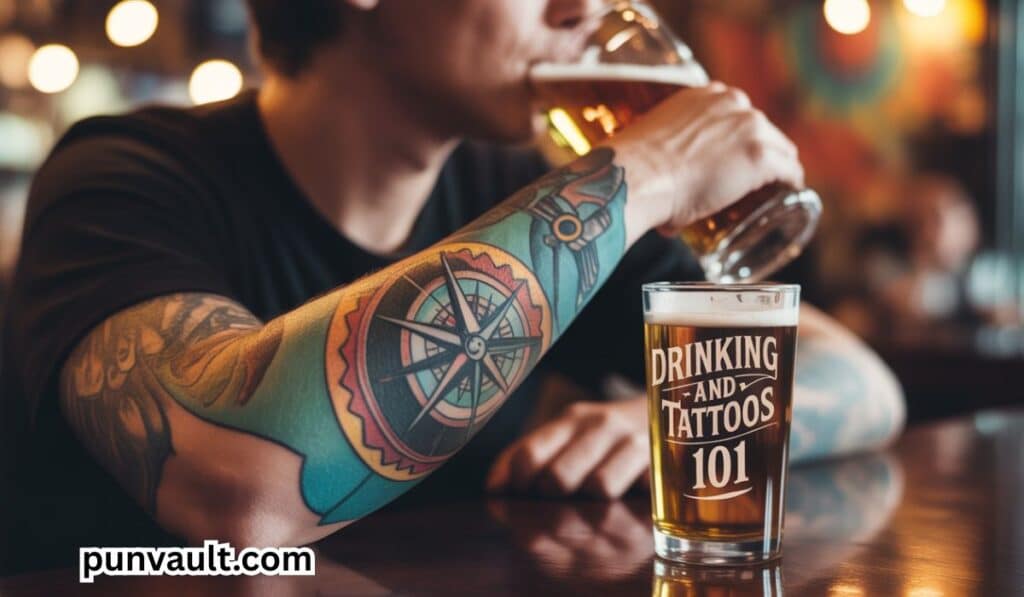Drink After Getting a Tattoo is a comprehensive guide that explains how alcohol consumption impacts every stage of the tattooing process. It explores the effects of drinking on your body before, during, and after your appointment, offering essential knowledge for anyone considering getting inked.
There’s a fine line between celebration and complication when it comes to tattoos and alcohol. What might seem like a harmless drink can lead to faded ink, prolonged healing, or even a tattoo you regret. This guide pulls no punches—just real facts to help you protect your skin, your design, and your overall experience.
Understanding Drinking and Tattoos 101 means knowing how alcohol thins your blood, impairs judgment, and affects skin health long-term. From preparing your body for a tattoo to ensuring it heals beautifully, this guide reveals smart, sober choices that lead to better tattoos and fewer regrets.
The Science Behind Alcohol and Your Body During Tattooing
Understanding how alcohol affects your body is crucial before stepping into any tattoo studio.
Blood Thinning Effects: Your Body’s Natural Defense System
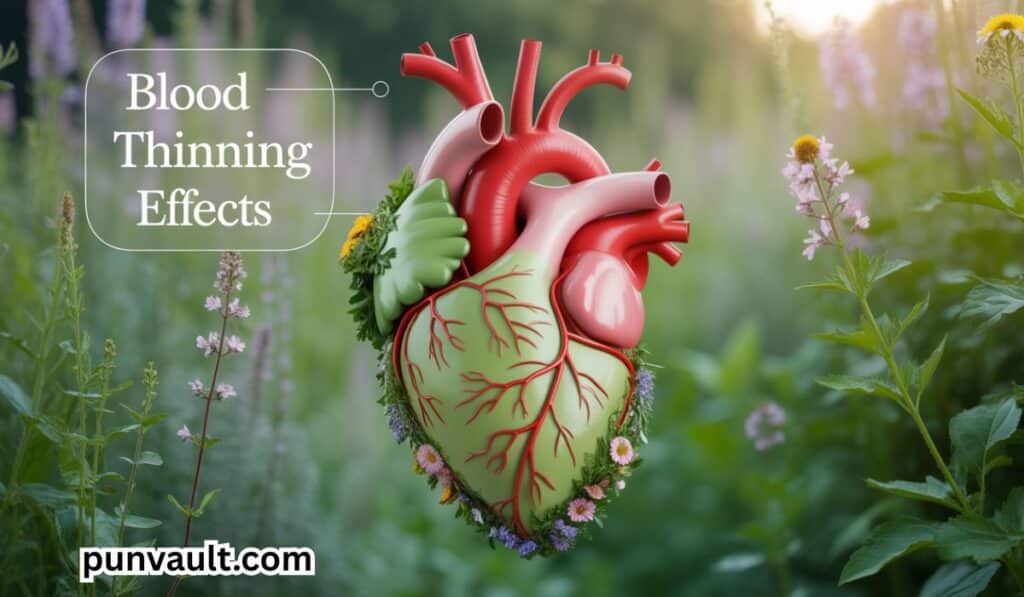
Alcohol acts as a blood thinner, reducing your body’s ability to clot properly. When a tattoo needle penetrates your skin thousands of times per minute, your body needs every clotting advantage it can get.
Here’s what happens inside your body:
- Platelet aggregation decreases by up to 40% within hours of drinking
- Blood viscosity drops significantly
- Clotting factors become less effective
- Excessive bleeding occurs during the tattooing process
Immune System Suppression: Fighting Infection Becomes Harder
Your immune system takes a direct hit from alcohol consumption. This creates perfect conditions for complications during the tattoo healing process.
Key immune system impacts include:
- White blood cell function decreases by 25-30%
- Inflammatory response becomes impaired
- Natural bacteria-fighting abilities weaken
- Recovery time extends significantly
Pain Perception Changes: The Dangerous Illusion
Many people think alcohol helps with tattoo pain management. This couldn’t be further from the truth. Alcohol creates a false sense of pain relief while actually making everything worse.
Alcohol’s pain impact:
- The initial numbing effect wears off quickly
- Pain sensitivity actually increases during the comedown
- Judgment impairment and tattoos leadto poor decisions
- Sessions often require stopping due to client discomfort
Before Your Session: The 48-Hour Rule You Can’t Break
Professional tattoo artists worldwide follow one golden rule: noabstain from drinking for at least 48 hours before a tattoo session. This isn’t arbitrary – it’s based on solid science.
Why 24-48 Hours Matter Alcohol’s Elimination Timeline
Your body processes alcohol at a predictable rate, but complete elimination takes longer than most people realize.
| Time After Last Drink | Blood Alcohol Level | Clotting Ability | Safe for Tattooing |
|---|---|---|---|
| 1-6 hours | Elevated | Severely impaired | Absolutely not |
| 12-24 hours | Trace amounts | Still compromised | Not recommended |
| 24-48 hours | Eliminated | Mostly recovered | Getting safer |
| 48+ hours | Clear | Fully restored | Yes |
Real Consequences of Drinking Beforehand
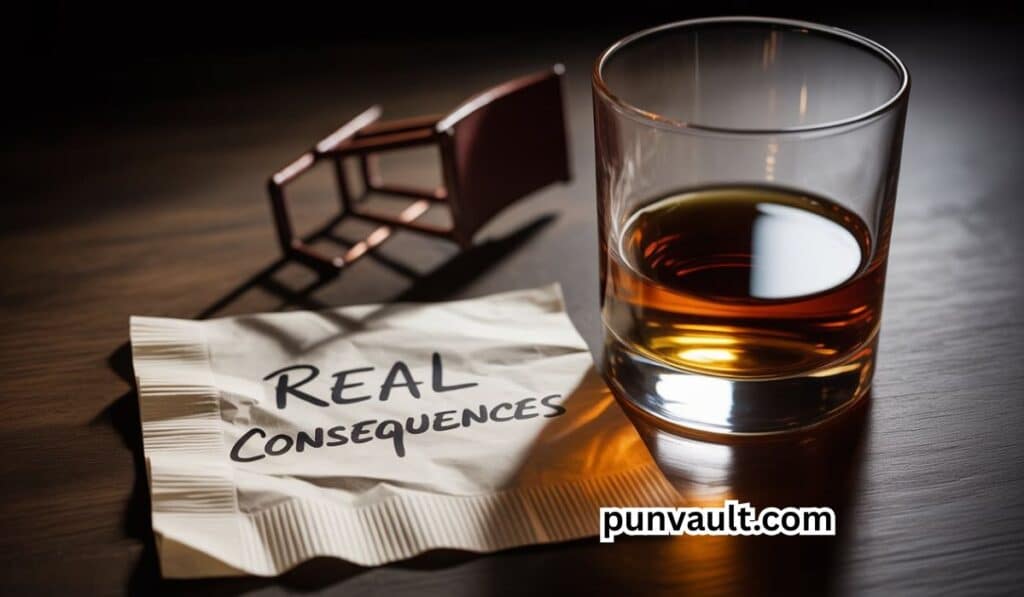
Professional tattoo artists see these problems regularly when clients ignore the alcohol and tattoo healing guidelines:
Excessive Bleeding Issues:
- Ink gets diluted and washed out
- Lines become blurry and imprecise
- Color saturation decreases dramatically
- Tattoo ink fading starts immediately
Quality Compromises:
- Tattoo scabbing and alcohol createuneven healing
- Blowouts occur more frequently
- Fine details become impossible to execute
- Touch-ups become necessary (at additional cost)
Safety Concerns:
- Many tattoo artist tips include refusing intoxicated clients
- Legal liability increases for both parties
- Emergency medical situations become more likely
- Tattoo studio safety protocols require sobriety
Natural Anxiety Management Without Alcohol
Nerves before tattoo sessions are completely normal. But alcohol isn’t the answer. Here are proven alternatives that actually work.
Breathing Techniques That Actually Work
Professional athletes and performers use these same methods to manage performance anxiety:
Box Breathing Method:
- Inhale for 4 counts
- Hold for 4 counts
- Exhale for 4 counts
- Hold empty for 4 counts
- Repeat 5-10 times
4-7-8 Technique:
- Inhale through nothe se for 4 counts
- Hold breath for 7 counts
- Exhale completely through the mouth for 8 counts
- Perform 3-4 cycles maximum
Physical Preparation Strategies
Your body responds better to tattooing when properly prepared:
- Light cardio 2-3 days before increases circulation
- Gentle stretching improves flexibility during long sessions
- Proper sleep (7-9 hours) for 3 nights prior
- What to eat before a tattoo: protein-rich meals stabilize blood sugar
Mental Strategies for Success
Visualization techniques:
- Picture yourself calm and relaxed during the session
- Imagine the finished tattoo looking exactly as planned
- Visualize healing perfectly and quickly
Mindfulness practices:
- Focus on the present moment rather than anticipating pain
- Use guided meditation apps 10-15 minutes daily
- Practice progressive muscle relaxation
Professional Options When Needed
For severe anxiety, consult your doctor about:
- Prescribed anti-anxiety medications (used responsibly)
- CBD seltzer for nerves (check local legality)
- Therapeutic consultation before your appointment
During Your Session: Zero Tolerance Policy Explained
Reputable tattoo studios maintain strict no alcohol policies during sessions. This isn’t negotiable, and here’s why.
Why Professional Shops Refuse Intoxicated Clients

Legal liability concerns:
- Insurance policies specifically exclude intoxicated clients
- Consent while under the influence isn’t legally valid
- Medical emergencies become the shop’s responsibility
- Professional licenses face revocation risks
Quality assurance issues:
- Tattoo placement decision requires clear judgment
- Design modifications need sober consideration
- Tattoo artist tips include client cooperation requirements
- Sessions may need immediate stopped
Medical Emergency Considerations
Alcohol complicates medical situations exponentially:
- Blood pressure medications interact dangerously
- Anti-inflammatory drugs and tattoos become contraindicated
- Allergic reactions mask themselves initially
- Emergency responders need an accurate medical history
Post-Tattoo Recovery: The Critical 2-Week Window
Alcohol tattoo healing interference extends far beyond your session. The next two weeks determine your tattoo’s final appearance.
First 24 Hours: Critical Foundation Period
Your body immediately begins repair work after tattooing. Alcohol and tattoo healing work against each other during this crucial window.
Immediate healing requirements:
- Blood clotting must occur properly
- The inflammation response needs to function correctly
- Hydration before a tattoo continues to be important
- Sleep becomes essential for cellular repair
Week One Challenges: Infection Risk Multiplication
Drinking before getting a tattoo creates problems, but drinking during initial healing is equally dangerous.
Alcohol’s impact on healing:
| Healing Aspect | Normal Process | With Alcohol | Risk Increase |
|---|---|---|---|
| Infection resistance | Strong immune response | Compromised immunity | 300% higher risk |
| Scab formation | Protective barrier forms | Delayed, incomplete | Poor healing quality |
| Color retention | Ink settles properly | Premature fading | 40-60% color loss |
| Healing time | 2-3 weeks typical | 4-6 weeks extended | 100% longer |
Long-term Recovery: Months of Considerations
Healing time after a tattoo extends much longer than most people realize. Aftercare for new tattoos requires months of attention.
Extended healing phases:
- Weeks 2-4: Deep tissue repair continues
- Months 1-3: Final color settling occurs
- Months 3-6: Complete healing finishes
- Sun exposure before and after requires protection
Alcohol’s Impact on Tattoo Longevity and Appearance
The relationship between drinking habits and skin health directly affects your tattoo’s appearance over time.
Immediate Visual Effects
Alcohol tattoo healing problems show up quickly:
- Tattoo ink fading begins within days
- Colors appear washed out and dull
- Line work loses crispness and definition
- Tattoo fading from alcohol becomes permanent
Long-term Aesthetic Consequences
Chronic alcohol consumption creates ongoing problems:
Skin quality degradation:
- Collagen production decreases significantly
- Elasticity reduces, causing sagging
- Skin irritation from alcohol becomes chronic
- Premature aging accelerates around tattoo areas
Color and detail deterioration:
- Reds and yellows fade fastest
- Black lines lose intensity
- Fine details blur beyond recognition
- Touch-ups become necessary more frequently
Financial Impact: Repair Costs Add Up
Professional tattoo restoration isn’t cheap:
- Color refresh sessions: $200-500 per session
- Line work touch-ups: $150-300 per area
- Complete cover-ups: $800-2000+ depending on size
- Laser removal: $1500-5000 for complete elimination
Smart Timing: When It’s Safe to Drink Again
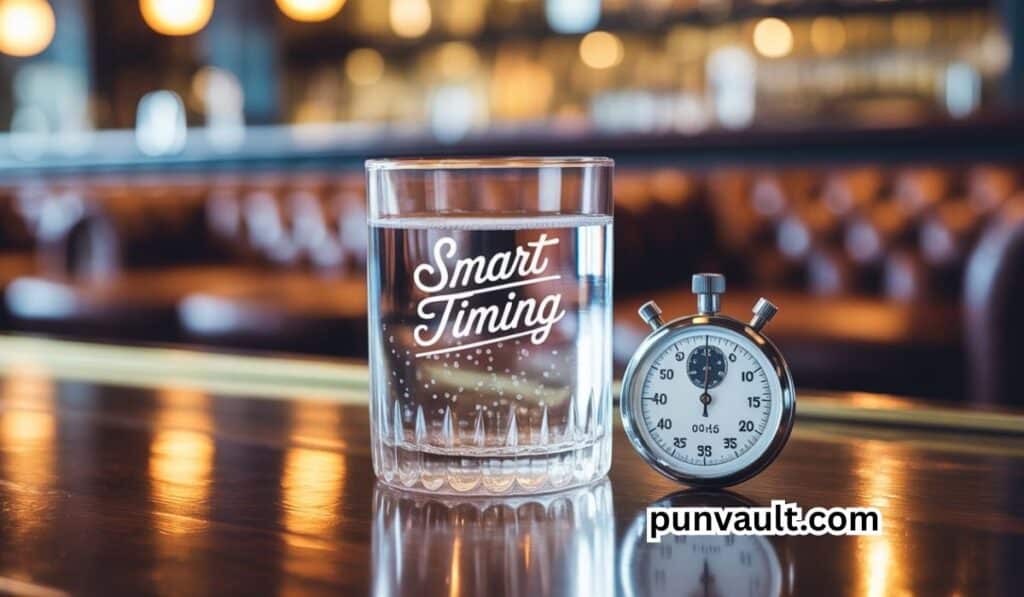
Understanding whether can you drink after getting a tattoo requires knowing your body’s healing timeline.
The 72-Hour Minimum Standard
Most professional guidelines recommend waiting at least 72 hours after your session before consuming any alcohol.
Why this timeline matters:
- Initial healing phase completes
- Infection risk decreases significantly
- Blood clotting and alcohol interaction minimizes
- Natural immune response stabilizes
Individual Factors Affecting Timeline
Not everyone heals identically. Consider these personal factors:
Age-related considerations:
- 20s-30s: Standard 72-hour minimum
- 40s-50s: Extend to 5-7 days minimum
- 60s+: Wait 1-2 weeks for safety
Health status impacts:
- Diabetes: Double standard waiting periods
- Heart conditions: Consult a physician first
- Immune disorders: Extended precautions necessary
- Medications: Check interaction warnings
Tattoo size and location:
- Small tattoos: Standard timeline applies
- Large pieces: Add 2-3 days minimum
- Sensitive areas: Extended healing required
- Multiple sessions: Reset the timeline each session
Complete Pre and Post-Tattoo Protocol
Following proper protocols ensures optimal results and tattoo aftercare success.
48 Hours Before Your Session
Hydration checklist:
- Drink 64+ ounces of water daily
- Hydration before the tattoo continues through the session day
- Avoid caffeine 12 hours before (causes jitters)
- Skip energy drinks completely
Sleep requirements:
- Get 7-9 hours nightly
- Maintain a consistent sleep schedule
- Avoid late-night activities
- Caffeine and tattoo timing matters – none after 2 PM
Nutrition guidelines:
- Eat a protein-rich breakfast day of
- Avoid empty stomach sessions
- Pack healthy snacks for long sessions
- What to eat before a tattoo: lean proteins and complex carbs
Day of Session Preparation
Clothing considerations:
- Wear comfortable, loose-fitting clothes
- Choose items you don’t mind getting ink on
- Dress for easy access to the tattoo area
- Bring layers for temperature changes
Mental preparation essentials:
- Arrive 15 minutes early for relaxation
- Bring headphones and calming music
- Consider HUSH numbing products if the artist recommends
- Lidocaine for tattoos should be discussed beforehand
First Week After Your Session
Daily cleaning protocol:
- Wash your hands thoroughly before touching a tattoo
- Use antibacterial soap (fragrance-free)
- Pat dry gently with clean paper towels
- Apply a thin layer of recommended tattoo balm for healing
- Avoid soaking the tattoo in water
Activity restrictions:
- No swimming for 2-3 weeks minimum
- Avoid intense workouts first 48 hours
- Skip saunas and hot tubs completely
- Sun exposure before and after requires SPF 30+
Red Flags: When Alcohol Has Already Interfered
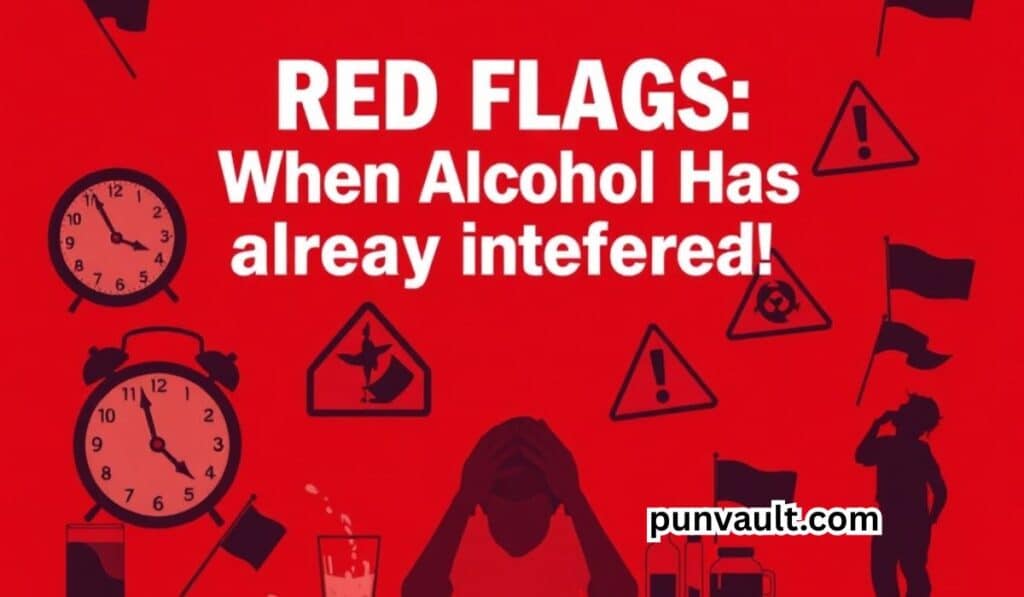
Recognizing alcohol and tattoo complications early can prevent permanent damage. Drinkingnk after getting a tattoo
Immediate Session Complications
If you’ve already consumed alcohol before your session, watch for:
Excessive bleeding indicators:
- Blood pools consistently during work
- Ink appears diluted or washed out immediately
- The artist mentions unusually heavy bleeding
- Session requires frequent breaks for cleanup
Poor ink retention signs:
- Colors look faded immediately after wiping
- Lines appear broken or incomplete
- Tattoo scabbing and alcohol createthick, uneven scabs
- Healing looks irregular compared to arthe tist’s examples
Healing Phase Warning Signs
Infection indicators requiring immediate attention:
- Red streaks extending from the tattoo area
- Excessive warmth around the entire tattoo
- Pus or unusual discharge (yellow, green, foul-smelling)
- Fever or chills within 2-7 days post-session
Delayed healing problems:
- Scabbing persists beyond 2-3 weeks
- Colors continue fading weeks after the session
- Raised, bumpy texture develops
- Skin irritation from alcohol becomes chronic
When to Consult Professionals
Immediate medical attention needed for:
- Signs of serious infection (fever, red streaks)
- Allergic reactions (widespread rash, difficulty breathing)
- Excessive swelling lasting more than 5 days
- Any concerning changes you can’t explain
Follow up with the tattoo artist for:
- Ink settling concerns after 6-8 weeks
- Color touch-ups needed
- Healing process questions
- Aftercare for new tattoos guidance adjustments
Myth-Busting: Common Alcohol and Tattoo Misconceptions
Let’s address the most persistent myths about alcohol and tattoos.
“Beer Doesn’t Count” – Completely False
Many people believe beer has less impact than hard liquor. This is dangerous misinformation.
Scientific reality:
- Blood alcohol content determines effects, not drink type
- Beer consumption still thins the blood significantly
- Drinking before a tattoo session includes ALL alcoholic beverages
- Two beers can impair clotting for 12-18 hours
“Topical Numbing Has Same Risks” – Major Misunderstanding
Some people think numbing cream for tattoos carries similar risks to alcohol. This comparison is completely incorrect.
Key differences:
- HUSH numbing products work locally, not systemically
- Lidocaine for tattoos doesn’t affect blood clotting
- Topical applications don’t impair judgment
- Professional numbing agents are specifically designed for tattooing
“Small Tattoos Don’t Matter” – Size Doesn’t Change Biology
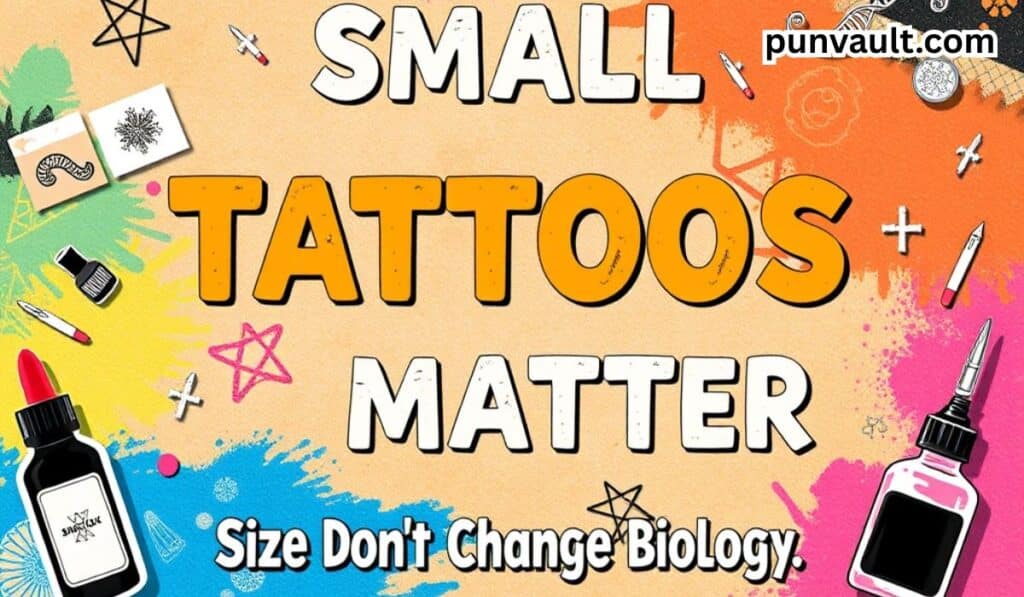
The tattoo healing process remains the same regardless of size. Your body’s response to alcohol doesn’t decrease for smaller tattoos.
Facts about tattoo size:
- Blood thinning and tattoos affectall sizes equally
- Infection after a tattoo stays consistent
- Small tattoos still require proper tattoo aftercare
- Healing time after a tattoo extends with alcohol,, regardless
“Wine Is Safer Than Hard Liquor” – Alcohol Is Alcohol
The type of alcoholic beverage doesn’t matter – only the alcohol content anthe d the blood alcohol level you achieve.
Reality check:
- 5 oz wine = 12 oz beer = 1.5 oz spirits in alcohol content
- Blood clotting and alcohol impairment aree identical
- Drinking habits and skin health suffer equally
- Professional tattoo artist tips include avoiding ALL alcohol
Your Tattoo Investment Deserves Better
Getting a tattoo represents a significant investment in your appearance, self-expression, and personal story. Drinking and tattoos simply don’t mix when you want optimal results. Drinkk after gettina g a tattoo
Key Takeaways for Success
Before your session:
- Avoid alcohol 48+ hours before your appointment
- Focus on hydration before a tattoo and proper nutrition
- Use proven tattoo pain management techniques instead
- Trust your tattoo artist’s’s tips and professional guidance
During your session:
- Maintain complete sobriety for safety and quality
- Tattoo placement decision requires clear judgment
- Cooperate fully with the tattoo studio’s’s safety protocols
- Remember that consent while under the influence isn’t valid
After your session:
- Wait a minimum of 72 hours before drinking again
- Follow the aftercare for new tattoos guidelines strictly
- Monitor the tattoo healing process for any complications
- Protect your investment with proper long-term care
Cost-Benefit Analysis: Short-term Comfort vs. Long-term Regret
The temporary anxiety relief from alcohol isn’t worth risking: drink after gettina g a tattoo
- Permanent tattoo damage from poor healing
- Increased infection risk requiring medical treatment
- Faded, blurry results needing expensive corrections
- An extended healing time is causing lifestyle disruptions
Take Action Today
If you have an upcoming tattoo preparation appointment:
- Stop drinking immediately if within 48 hours of your session
- Increase water intake to support optimal healing
- Practice anxiety management techniques starting now
- Discuss concerns openly with your tattoo artist
- Plan your recovery period,, including alcohol avoidance
Trust the Professionals

Professional tattoo artists have seen countless examples of alcohol tattoo healing problems. Their guidelines exist to protect both your safety and their artistic reputation.
Your dream tattoo deserves the best possible conditions for success. Alcohol and tattoo healing interference is completely preventable with proper planning and commitment.
Make the smart choice. Your future self will thank you when you’re proudly showing off a perfectly healed, vibrant tattoo instead of dealing with complications that could have been easily avoided.
Remember: Great tattoos require patience, preparation, and sobriety. The temporary sacrifice is worth a lifetime of satisfaction with your body ar Drinkkrink after gea tting tattoo.
Conclusion
Drinking and Tattoos 101: Before, During, and After Your Session teaches us that alcohol and tattoos don’t mix well. Drinking can thin your blood, affect healing, and make it harder for your tattoo artist to do their job. Staying sober helps you get better results and protects your skin.
Following the advice in Drinking and Tattoos 101: Before, During, and After Your Session can make your tattoo experience safer and more enjoyable. Wait before and after your session to drink, follow proper aftercare, and focus on healing. Your tattoo—and your body—will thank you Drinkkink after getting a tattoo
FAQs
Can I drink alcohol 24 hours before getting a tattoo?
No, it’s best to avoid alcohol at least 24–48 hours before your tattoo to prevent blood thinning and poor ink retention.drink after getting tattoo
Is it okay to drink during a tattoo session?
No, drinking during a tattoo is not allowed. Reputable studios won’t tattoo anyone under the influence due to legal and safety concerns.drink after getting tattoo
How long should I wait to drink after getting a tattoo?
Wait at least 48–72 hours after your tattoo to drink, or longer if it’s a large piece, to support proper healing and scab formation.drink after getting tattoo
Can alcohol affect the look of my tattoo over time?
Yes, frequent drinking can lead to dehydrated skin, which may cause your tattoo to fade or look dull faster.drink after getting tattoo
What can I use instead of alcohol to calm my nerves before a tattoo?
Use topical numbing creams (like HUSH) or try CBD seltzers, deep breathing, or distraction techniques to stay calm and sober.drink after getting tattoo

Carlos Wise is the undisputed king of comebacks and the master of roast-worthy wit. With a sharp tongue and a sharper sense of humor, he crafts savage one-liners and hilarious insults that leave no mic un-dropped. When he’s not penning legendary burns, Carlos is busy decoding the art of sarcasm and turning everyday moments into comedy gold. If you’re looking for a laugh with bite, Carlos delivers every time.

